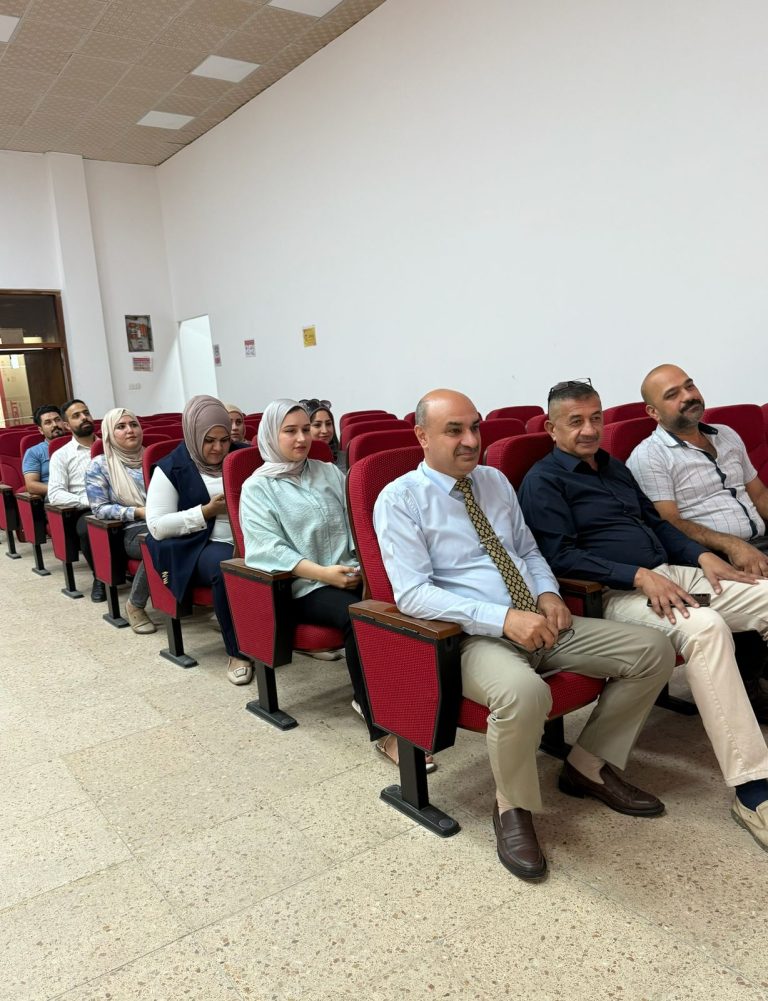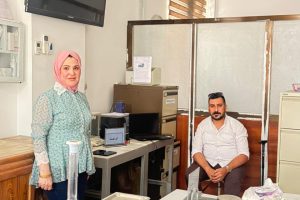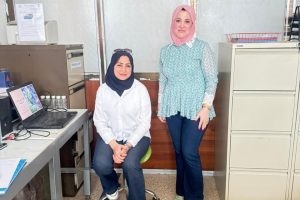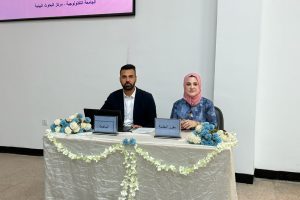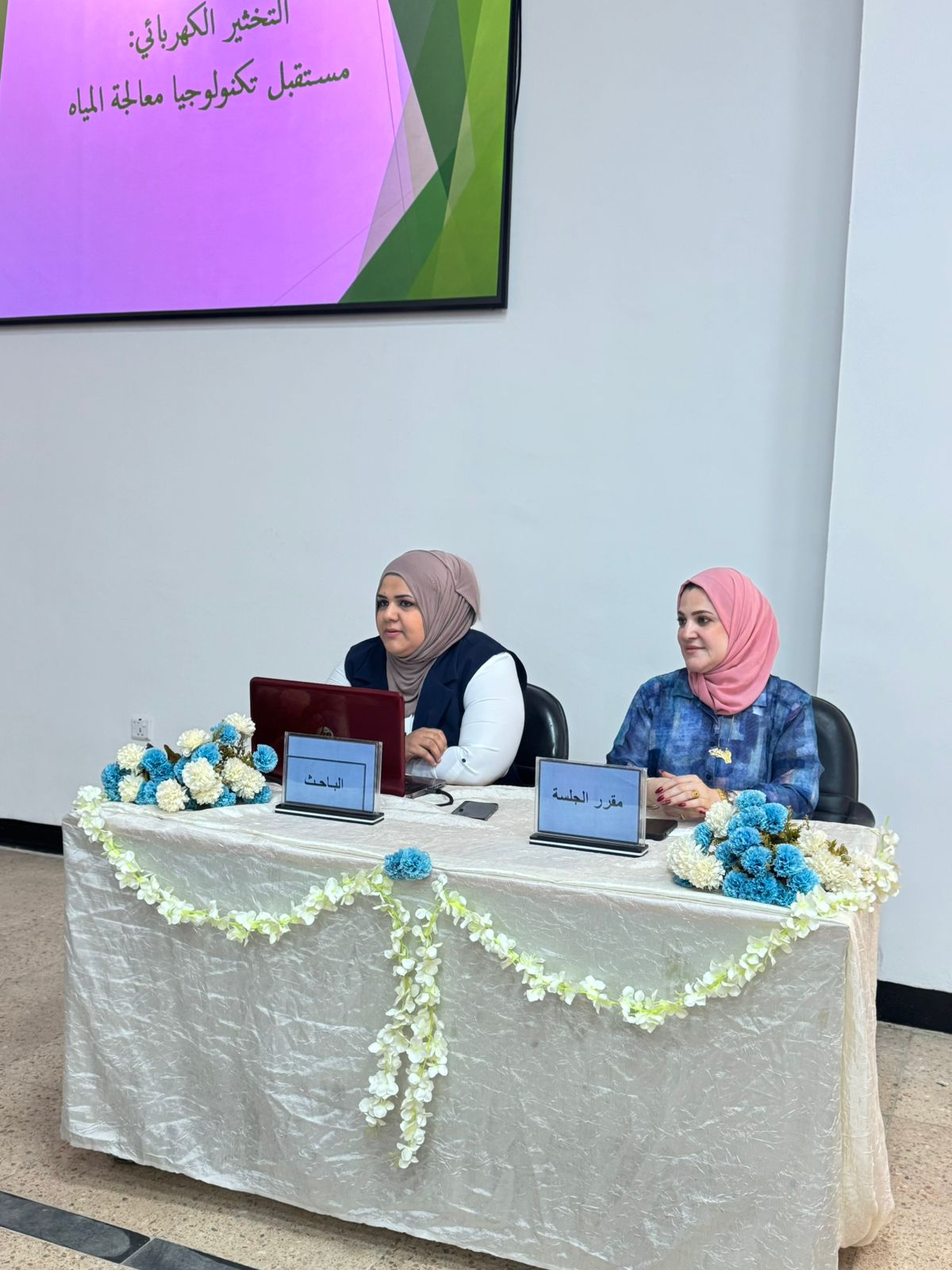
Electrocoagulation: A Promising Technology in Water Treatment
As part of the cultural season activities, the Environmental Research Center organized a scientific event entitled:“Electrocoagulation and Its Applications in Water Treatment”, presented by Assistant Lecturer Israa Radi Abbas, with the attendance of researchers and specialists in environmental technologies. The session focused on electrocoagulation as an electrochemical process that uses metal electrodes—such as aluminum, iron, or zinc—to generate metal ions that act as coagulants, attracting oppositely charged pollutants and facilitating their removal. The presentation highlighted the integration of electrochemical reactions with coagulation and flotation mechanisms, which contribute to neutralizing suspended pollutants and aggregating them into removable clusters. This process reduces reliance on chemical additives and limits sludge production, making it a sustainable option in modern water treatment. This event aligns with the Center’s ongoing efforts to promote awareness of advanced environmental technologies and support scientific research that addresses water and sustainability challenges.
